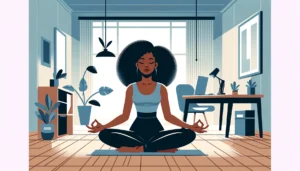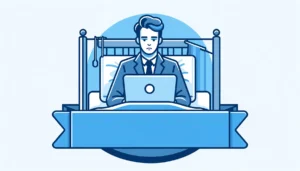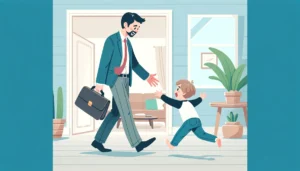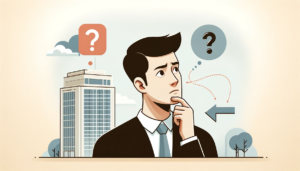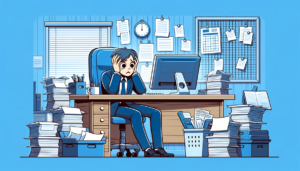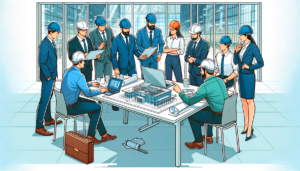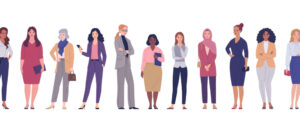Covidsomnia: Why we’ve lost the ability to sleep (and how we get it back)
- 9 Min Read
More people than ever are suffering from disrupted or lack of sleep, affecting productivity and happiness levels. In this article, we explore some of the causes and solutions for HR leaders to help.
- Author: Gareth Platt
- Date published: Mar 31, 2022
- Categories
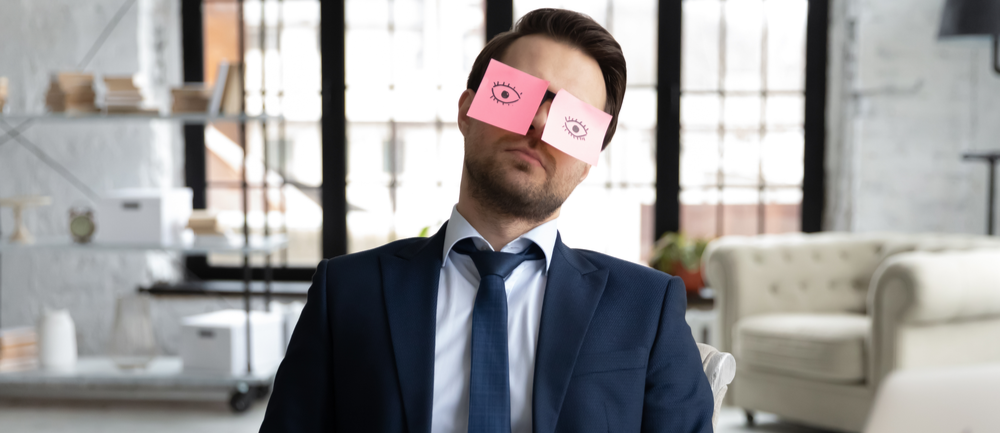
It’s official: Britain has a sleeping disorder.
According to research from mental health charity Mind, the number of prescriptions issued for the NHS’s most common sleeping pills rose by nearly 300,000 between 2019-20 and 2020-21. During the latter period, more than 11 million such prescriptions were written.
It’s just the latest in a long line of articles written on the subject of sleep since the Covid-19 pandemic began. The topic’s even got its own glib portmanteau, Covidsomnia. If you’re being swallowed up by endless hours of darkness and fiddling with your nighttime habits in an attempt to find an elixir, you’re one of the sufferers.
And while we struggle to find solutions, the cause is much easier to find.
The pandemic has pushed us to work harder than ever and, just as importantly, it’s eroded our work-life boundaries. There is no longer a ‘home zone’ and a ‘work zone’; the two have bled into one another and thrown our Carcadian rhythms into apoplexy.
We’re not working at home, we’re living at work
Sean O’Meara has witnessed all these problems first-hand. Having founded his own remote-first digital consultancy, Essential Content, way back in 2015, he is a veteran of our new normal, and has seen the struggles many people face in embracing it.
“It’s becoming increasingly hard for employees to set and maintain boundaries with their employers and – perhaps more importantly – with themselves,” says Sean.
“For many people, working from home is starting to feel like ‘living at work’. One habit that appears to be causing significant issues is that of compensatory over-functioning.
“Employees are worrying that they aren’t adequately signalling their value to their employers because of the remote context, so they spend more time working than is healthy to make up for it.”
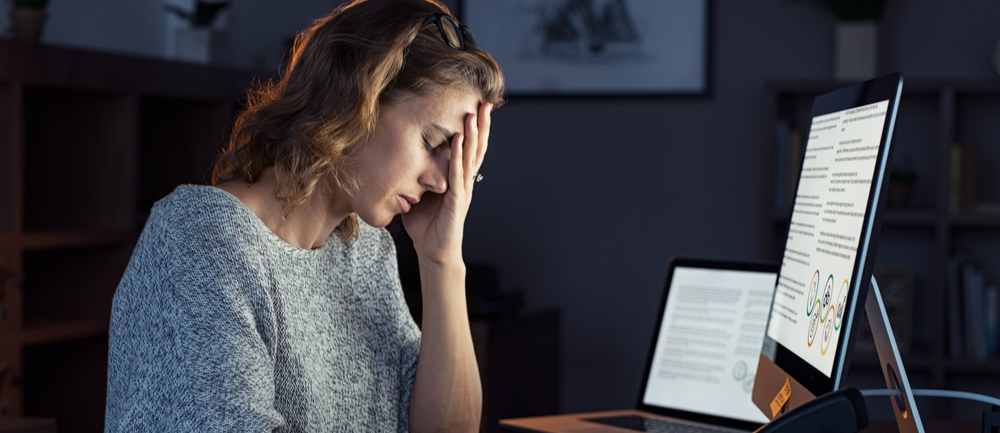
We’ve read about these problems before, of course. We’ve read about them when people describe burnout and isolation, when the think tanks tell us that a quarter of workers feel lonely or that global levels of stress and depression have jumped by 25 percent.
But sleeplessness is a Covid symptom all of its own. The sheer length of time it takes to recover – according to research in the U.S., over 20 percent of acute insomniacs suffer recurring symptoms for a year or more – means it could be one of the most enduring legacies of the pandemic. And it has a disproportionate impact on certain demographic groups, notably those with existing mental health problems.
“For those of us with non-visible disabilities, the amount of change that we have had to process and adapt to in the last two years has been anxiety-inducing,” says Jacqui Wallis, CEO of Genius Within, a social enterprise that focuses on neurodiversity (over 60 percent of the company’s employees identify as neurodivergent themselves).
“We work with thousands of individuals to improve their performance at work and we saw a 128 percent spike for help around stress or ‘state management’ during the peak of the pandemic. Within our internal teams, our annual study revealed that twice as many of our team had identified with having a period of poor mental health within the last 12 months, versus the year before.”
Helping people to be unproductive
HR leaders have a duty to tackle this problem. And for many organisations, this will require a fundamental rethink to how they conceive the working day.
Over the last two years, much of our time has gone into helping staff be productive. We’ve given them shiny new technologies and issued sweeping diktats on how to use them. We’ve created glossy digital handbooks to bind our people to our mission and make them want to give their all, even when we can’t physically see them.
But if we are serious about the wellbeing of our people, we need to help them be unproductive too. To help them achieve fulfillment beyond their core daily tasks. To actively encourage them to not think about work.
“Changes to the way we work have the potential to disrupt our energy levels,” says Paula Allen, global leader and senior vice-president at wellbeing platform LifeWorks.
“The simple lack of variety in our daily routine is itself a mental strain, which many do not recognise. We need a balanced “diet” for our brain as much as we need one nutritionally.
“Experiences that offer fun, accomplishment, connection with others, movement and changes of scenery are needed every day. We feel unduly fatigued and more irritable when our range of mental stimulation is too narrow.
“When working from home, many employees also lose out on structural cues that are present in the office such as meetings and scheduled lunch breaks. For some, this means that breaks never happen. For others it affects the ability to focus on a task in a time-bound manner as one hour blurs into the next.”
In other words, we need to protect our people from themselves. To safeguard their wellbeing, we must encourage them to take regular breaks and pursue hobbies before, after and even during work. We must raise awareness of time-management techniques, such as the Pomodoro method which breaks the day down into small chunks. And we should promote mindfulness and meditation ‘timeouts’ as a way to break the screen cycle.
Leading by example
But it’s not enough to simply issue a communiqué telling staff to switch off and do fun stuff. Leaders must set a positive example, absorbing best-practice guidance that others can then copy.
This is certainly the goal of Whirlpool UK, which has set itself the challenge of getting healthier – both physically and mentally. Leaders have committed to a series of behaviours, from going to bed earlier to spending more time chilling with a good book.
“We encourage our colleagues to ensure they both physically and digitally disconnect from work,” says Hayley Whitwood, Whirlpool’s head of HR, UK and Ireland. “We have provided clear guidance and role-modelling around setting boundaries to balance work/life integration, and we encourage colleagues to allocate time in their diaries to focus on themselves and their own learning and development.
“The Be*Well programme, which we created for our colleagues, understands that everyone has their own individual journey, so how each person maintains a clear work/life balance is different.
“The programme ensures that we provide colleagues with tools and resources to help them, as well as their family, on a path to being well.”
“Those breaks need to be set in stone”
In some organisations, the internal culture will already embrace the idea of breaks and work-lifer balance. In others, however, the concept of rest remains a taboo, tainted by outdated nostrums of productivity.
In these cases, HR leaders must actively compel their people to build bookmarks into their day, even though it goes against the current zeitgeist of soft-touch leadership.
Anthony Chadwick is founder of the Webinar Vet, an online veterinary training provider with a presence in over 150 countries. Again, he is an early adopter of remote working and has clear ideas on how to protect the mental health of his people.
Under Anthony’s direction, the Webinar Vet strongly encourages its employees to take three specific breaks: morning, lunchtime and afternoon. And weekly tea breaks, held via Zoom each morning, will soon become mandatory.
“We know from all the studies that if you’re sitting down for three or four hours at a time, the quality of your work is going to deteriorate quite rapidly, so getting people up and about is important,” Anthony says.
“And it’s important to set the daily chat in stone. It helps people to get to know one another – there are some people we haven’t even met [since Covid began]. Those coffee moments, when in the old days you’d chat around the watercooler or say ‘fancy going for a pint’ are so important and they’re just not happening.
“People need a break from work where they can chat to a colleague about football, about what they’re watching on Netflix… whatever.”

Some HR theorists would go even further than this.
They would argue that as well as setting baselines for relaxation and communication during the day, HR executives can actually help their people redesign their home office to create a healthier working environment.
Many employers, for example, have purchased office chairs and tables for their teams, or provided the budget to do so. With so many overheads freed up by the dispansion of the traditional office, this sort of proactive thinking may help staff avoid insomnia and deeper mental health issues.
Sean O’Meara is certainly an advocate, suggesting that companies should pivot away from office benefits and towards the new concept of ‘perks from home.’
“Since we’re not in the office as much, if at all, employers have an opportunity to rethink how they offer perks and benefits to their people.
“One of the most popular ideas we discussed [in the book] was the employer ‘sleep package’. Employers could use the money they’re not spending on office-based perks to provide black-out blinds, high quality bedding, white noise machines and other items that can help their people get a restful and restorative night’s sleep.
“Tiredness has a significant impact on productivity, so this should pay for itself.”
Indeed, even without the productivity gains, an investment in sleep (and other mental health imperatives) will provide its own reward. Leaders have a basic duty of care to those in their charge; our people’s welfare should always be our first priority.
Britain’s sleep disorder should set alarm bells ringing. The time for a reset is upon us.


